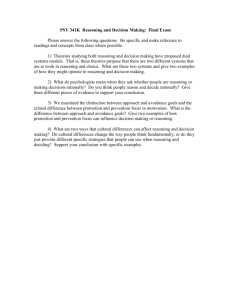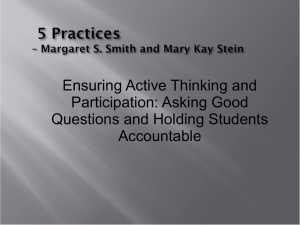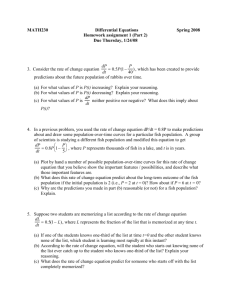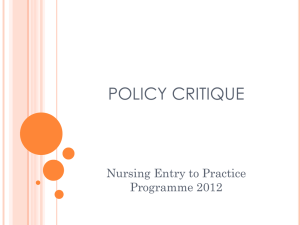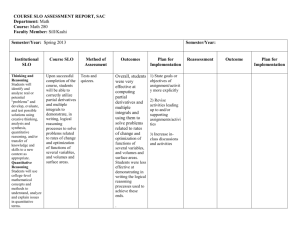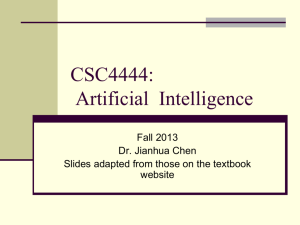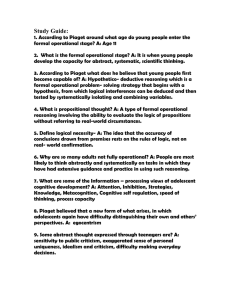About Critical Thinking
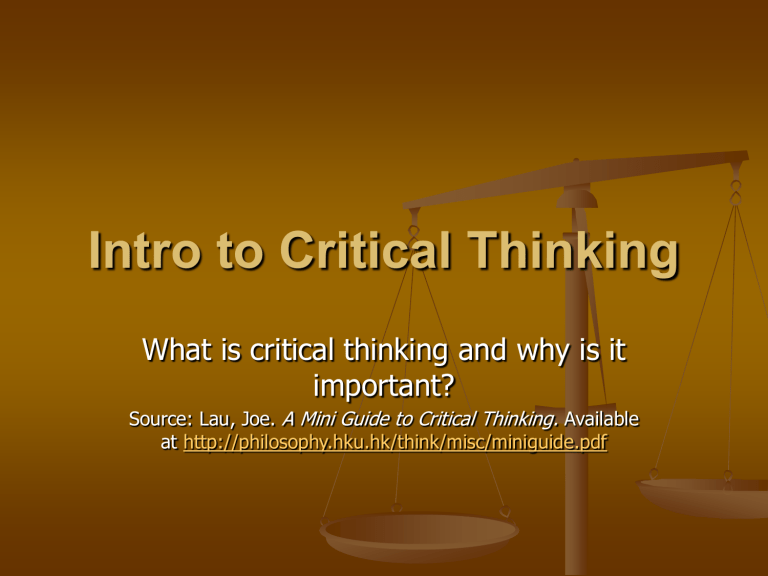
Intro to Critical Thinking
What is critical thinking and why is it important?
Source: Lau, Joe. A Mini Guide to Critical Thinking.
Available at http://philosophy.hku.hk/think/misc/miniguide.pdf
INTRODUCTION
Critical thinking is the ability to think clearly and rationally.
It includes the ability to engage in reflective and
independent thinking.
Someone with critical thinking skills is able to do
the following :
understand the logical connections between ideas
identify, construct and evaluate arguments detect inconsistencies and common mistakes in reasoning solve problems systematically identify the relevance and importance of ideas reflect on the justification of one's own beliefs and values
WHAT CRITICAL THINKING IS
NOT
(1) Critical thinking is not a matter of accumulating information.
A person with a good memory and who knows a lot of facts is not necessarily good at critical thinking.
A critical thinker is able to deduce consequences from what he knows, and he knows how to make use of information to solve problems, and to seek relevant sources of information to inform himself.
WHAT CRITICAL THINKING IS
NOT
(2) Critical thinking should not be confused with being argumentative or being critical of other people.
Although critical thinking skills can be used in exposing fallacies and bad reasoning, critical thinking can also play an important role in cooperative reasoning and constructive tasks.
Critical thinking can help us acquire knowledge, improve our theories, and strengthen arguments.
We can use critical thinking to enhance work processes and improve social institutions.
WHY STUDY CRITICAL THINKING
Critical thinking is a domain-general
thinking skill.
The ability to think clearly and rationally is important whatever we choose to do.
If you work in education, research, finance, management or the legal profession, then critical thinking is obviously important.
But critical thinking skills are not restricted to a particular subject area.
Being able to think well and solve problems systematically is an asset for any career.
WHY STUDY CRITICAL THINKING
Critical thinking is very important in the new knowledge economy.
The global knowledge economy is driven by information and technology.
One has to be able to deal with changes quickly and effectively.
The new economy places increasing demands on flexible intellectual skills, and the ability to analyze information and integrate diverse sources of knowledge in solving problems.
Good critical thinking promotes such thinking skills, and is very important in the fast-changing workplace.
WHY STUDY CRITICAL THINKING
Critical thinking enhances language
and presentation skills.
Thinking clearly and systematically can improve the way we express our ideas.
In learning how to analyze the logical structure of texts, critical thinking also improves comprehension abilities.
WHY STUDY CRITICAL THINKING
Critical thinking promotes creativity.
To come up with a creative solution to a problem involves not just having new ideas.
It must also be the case that the new ideas being generated are useful and relevant to the task at hand.
Critical thinking plays a crucial role in evaluating new ideas, selecting the best ones and modifying them if necessary.
WHY STUDY CRITICAL THINKING
Critical thinking is crucial for self-
reflection.
In order to live a meaningful life and to structure our lives accordingly, we need to justify and reflect on our values and decisions.
Critical thinking provides the tools for this process of self-evaluation.
CAVEAT ON CT
Although most people would agree that critical thinking is an important thinking skill, most people also do not know how to improve their own thinking.
This is because critical thinking is a meta-
thinking skill.
It requires careful reflection on the good principles of reasoning and making a conscious effort to internalize them and apply them in daily life.
This is notoriously hard to do and often requires a long period of training.

